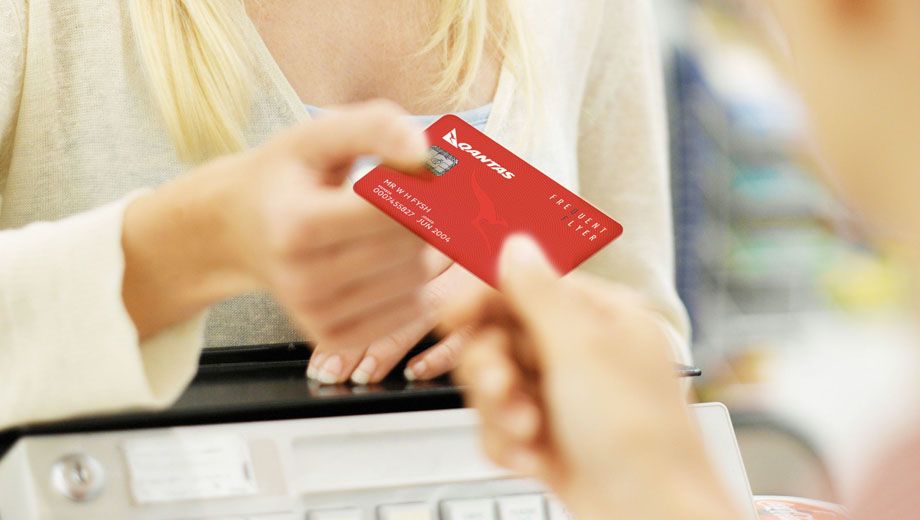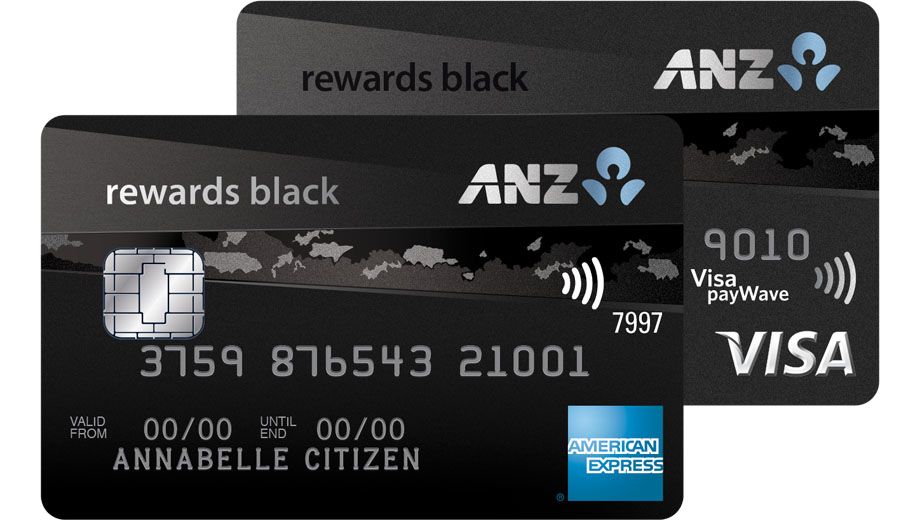How the interchange cap will affect credit card frequent flyer points

Disclaimer
Executive Traveller may receive a commission when you apply for these credit cards via our links.
The information provided on this page is purely factual and general in nature. You should seek independent advice and consider your own personal circumstances before applying for any financial product.
The number of Qantas and Virgin Australia frequent flyer points that you can earn via credit card spending is likely to plummet next year.
It's an unwelcome side effect of new government regulations, imposed by the Reserve Bank of Australia, to limit the fees charged to businesses to process credit card payments.
While that should lead to generally lower credit card booking fees imposed by airlines, brace yourself for a dramatic cut in the points-per-dollar earning rate on most credit cards.
The 'interchange cap' explained
When a business accepts a credit card payment, that business pays a percentage-based fee to their EFTPOS provider, with part of that fee sent to the customer's bank as an 'interchange fee'.
Currently, interchange fees of around 1.5-1.7% are expected of high-end rewards cards, which helps to pay for the higher number of frequent flyer points these cards typically earn.
All that changes from July 1 2017, when the interchange fees will be capped at 0.8% for all Australian-issued Visa and MasterCard credit cards, as well as American Express 'companion cards' issued by ANZ, Commonwealth Bank, NAB and Westpac in their popular two-card 'combo' packages.
On the whole, this is good news: it'll mean an end to excessive card fees for payments at small corner stores through to larger charges like hotel bills.
Airlines will also need to trim their current 'booking fees' from $7 and up on domestic flights and $30 for international flights to a percentage of the ticket price, being the maximum 0.8% interchange fee plus any fees paid to the bank which processes these transactions.
(This will generally mean smaller booking fees for economy fares, but higher fees for international business class and first class tickets – an $8,000 business class ticket to London or Los Angeles, for example – would attract an $80 charge if the overall processing fee totals 1.0%.)
"With the cost of acceptance defined in percentage terms, merchants will not be able to impose high fixed-amount surcharges on low-value transactions, as has been typical for airlines," the RBA said in a statement.
Why your points haul will plummet
With banks now collecting a smaller cut on transaction surcharges, this means there's less money to purchase frequent flyer points from the likes of Qantas and Virgin Australia (or indeed other airline partners) and pass these on to customers as an inducement to wave that plastic more often.
This is likely to have the most impact on bank-issued AMEX cards, which often attract higher processing fees for businesses – sometimes north of 3% – compared with MasterCard and Visa.
With that key advantage eroded, it's likely that the Big Four banks will wind back or even abolish their American Express companion card programs in favour of standalone MasterCard and Visa offerings, and at the same time reduce the number of frequent flyer points earned per dollar spent on most MasterCard and Visa cards.
Cuts to interchange rates: reward points cuts
A 'first taste' of these cuts came in 2015 when merchant fees for 'super premium' cards such as Visa Signature, Visa Infinite and MasterCard World were originally slashed, as some issuers quickly cut points earning as a result.
Most prominent was Citibank which told Australian Business Traveller at the time: "Due to the external re-pricing of interchange rates, effective 1 November 2015, the revenues that Citi receives from individual credit card transactions have significantly decreased.
"As a result of this change, Citi has advised customers that its credit card rewards program will be amended from March next year," the spokesperson added.
Those changes lowered the number of frequent flyer points earned via Citi Prestige Visa Infinite rewards cards by roughly 25% on some transactions, cut from a maximum equivalent of 1.33 to 1.0 frequent flyer points on everyday purchases.
At the same time, reductions were also made to earning rates on the bank's Citi Visa Signature cards with new monthly earning limits imposed on spend within Australia, resulting in no points at all being awarded on transactions that exceeded those limits.
Why are credit card points affected?
Let's assume your wallet packs a Black-level card which today earns 1.5 frequent flyer points per dollar spent and you shop at a business that's currently paying an interchange fee of 1.7% as part of their overall credit card handling costs.
Spend $1,000 with that business and your bank nets $17 in interchange fees to help 'buy' the 1,500 frequent flyer points you've come to expect.
Slash that interchange rate to 0.8% and the interchange fee the business pays drops to $8 on that same transaction, leaving less than half as much revenue for your bank to spend on perks like frequent flyer points.
As a result, some banks may choose to cut the number of points earned per dollar, others may increase card annual fees to help cover the spread and others may adopt a combination of both, or innovate in other ways.
RBA changes for American Express, Diners Club
Critically, the RBA's changes do not affect American Express and Diners Club cards issued directly by American Express Australia and Diners Club International, as these companies have a direct relationship with businesses and with the cardholders who shop with them, rather than using inter-bank 'interchange' systems.
That means American Express and Diners Club can continue to charge merchants fees at their discretion (above 0.8%) to accept and process their own cards, and can in turn use that advantage to provide frequent flyer points to cardholders at superior rates.
Speaking of the changes, an American Express spokesperson affirmed to Australian Business Traveller that as Amex-issued cards are not impacted by interchange regulation, "we absolutely believe that the superior rewards proposition that we currently have will continue to grow."
However, in terms of whether the Big Four Banks would also continue issuing American Express cards, the spokesperson noted that "it's really down to the banks as to what they will or won’t do".
Disclaimer
Executive Traveller may receive a commission when you apply for these credit cards via our links.
The information provided on this page is purely factual and general in nature. You should seek independent advice and consider your own personal circumstances before applying for any financial product.

Qantas - Qantas Frequent Flyer
02 Jul 2011
Total posts 1378
The direct issued Amex point is interesting..
Will be interesting to see whether businesses react by pressuring Amex to change its charge, differential surcharging (eg. 1% normal cards, 3% Amex issued Amex) or dropping Amex all together.
Either way , unlikely to see them being totally unaffected
Qantas - Qantas Frequent Flyer Platinum
07 Feb 2013
Total posts 548
Businesses can try to pressure all they want it won't make a lick of difference.
Qantas - Qantas Frequent Flyer
29 Nov 2013
Total posts 475
My e-commerce business accepts AMEX - I process maybe AUD 250k per annum via AMEX. I don't pay a 3% surcharge to AMEX. I also don't charge customers a premium to accept AMEX - and funnily enough, AMEX reward me for this with lower surcharge/processing costs. The difference from Visa/MC to AMEX is seriously not worth worrying about.
BUT...it drives me nuts to see hotels charge up to a 3% surcharge to accept AMEX - I process a fraction of what they will process yet my AMEX fees are no where near 3%.
Either these hotel groups are really poor at negotiating with AMEX or they are ripping Australian customers...
21 Sep 2011
Total posts 71
This change is ultimately flawed. From a retail perspective, if a merchant wanted to charge me $80 credit card fee for a $8000 4K flat screen TV, I would walk out of there in a heart beat. Retailers understand if a customer buys a big ticket item, credit card fees should be obsorbed. That's why airlines are underchanging fees for business class fares and claims that the fees they recover from economy fares do not cover their entire merchant bill. RBA should not fall for this.
Virgin Australia - Velocity Rewards
24 Apr 2014
Total posts 47
I disagree. Any fees or charges should be representitive of the fees that the merchant has to pay for that transaction. It should not be a way to gauge money from customers - as it's not a part of the advertised price.
Merchants of course don't have to pass those costs on as a CC surcharge, it could just be included as the cost of the item, but it's up to consumers to decide where they shop.
I continue to find it bonkers how you can buy a cheap airfare, and then you get slugged with an absurd CC fee which is a hell of a lot more than the actual costs the merchant pays for that transaction!
QFF
19 Sep 2013
Total posts 202
Why? Even at 3%, I believe that you are still better off using your CC whenever possible to gain those points for the high-value award flights. I purchased my last car using my Amex card and my partner built a house with her Amex CC, and we have both enjoyed our J award flights around the world. Every time I do the sums, I'm still OK with using my CC, despite the charges.
05 May 2016
Total posts 619
I wonder how this will affect credit card sign on bonuses?
It is going to take longer to get the points needed for upgrades, award flights etc. which is disappointing.
Qantas - Qantas Frequent Flyer
26 Oct 2013
Total posts 33
I can see a big rush towards Amex direct cards. Holding a Westpac Earth Black Amex card, I expect to hear bad news early in '17 - time to go direct to Amex?
Hi Guest, join in the discussion on How the interchange cap will affect credit card frequent flyer points